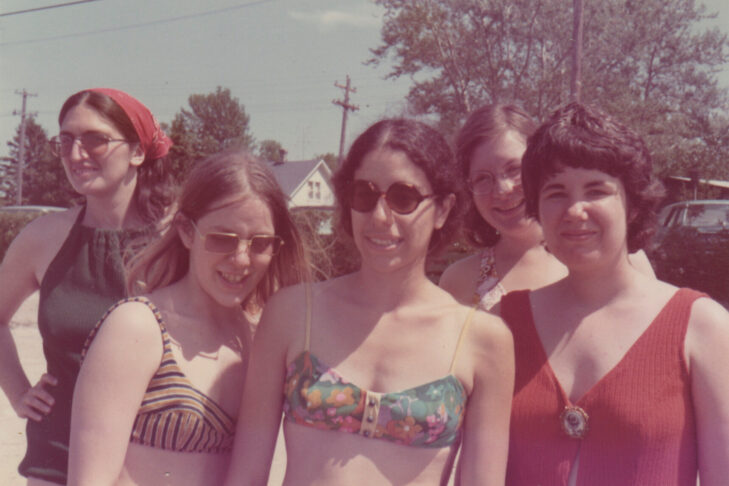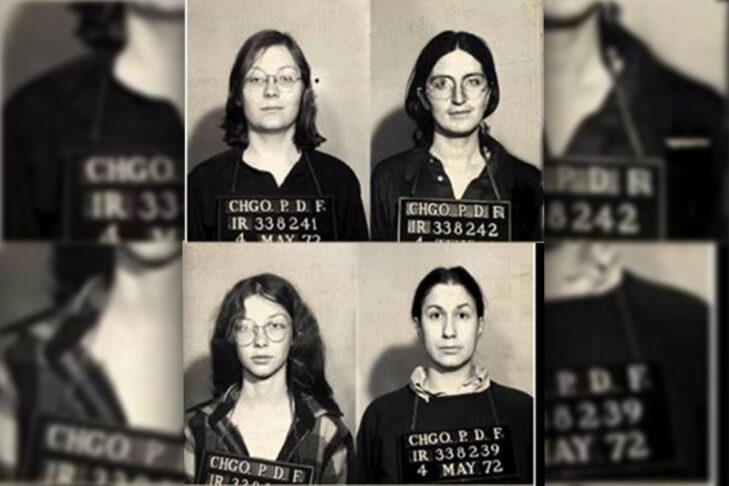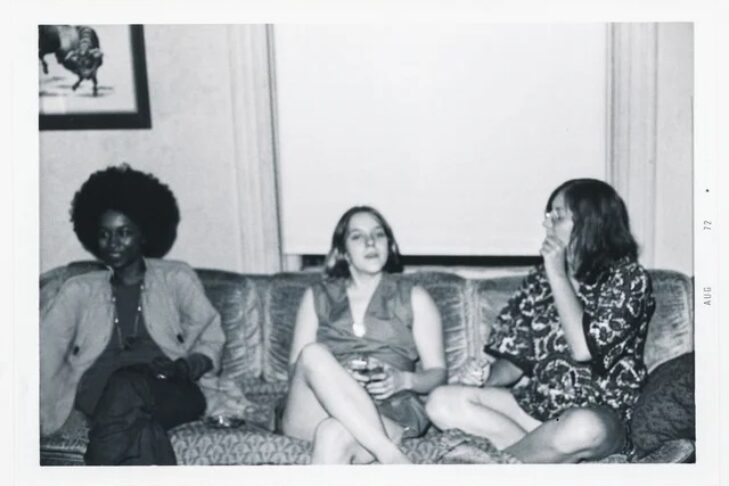I’ve been thinking about what abortion will look like after the recent overturning of Roe v. Wade. I glimpsed that future last week when I met women and men standing on street corners in Ann Arbor, Michigan, asking for signatures to bring a proposed constitutional amendment to local voters. The amendment, if passed, would override a 90-year-old state law that makes abortion a felony, even in the case of rape or incest.
These people—almost all of whom are young—have taken up the mantle of “The Janes.” The Janes’ story is now an eponymous documentary streaming on HBO Max, showcasing interviews with former “Janes” who set up a robust whisper network for women to acquire abortions in 1968. All a woman had to do was answer a classified ad to “call Jane.” On the other end of the line was information about how to acquire a discreet abortion.
This was the era before Roe v. Wade gave women the constitutional right to have an abortion. Many of the women who needed abortions were students. Some of them were middle-class homemakers who already had children, and others were poor women scrambling to pay for an abortion. Before the Janes came into the picture, most callers were given the address of a seedy motel to see “Mike,” a construction-worker-turned-abortionist. Mike learned how to do the procedure by watching a “real surgeon,” and then went freelance. Interviewed in “The Janes,” he says nonchalantly that performing abortions was more lucrative than his construction job. “Abortions,” he says straight into the camera, “were like mink coats. Lots of women wanted them, but not everyone could afford them.” When some of the Janes found out Mike was not an actual doctor, they decided that if Mike could learn to perform abortions, so could they.
In one of the documentary’s more memorable scenes, Eileen Smith, a former Jane, spreads out on her dining room table the medical instruments she used to perform abortions. “Sometimes you have to start with a small dilator just to try to get inside the cervix,” she says, holding up the tool. She then self-consciously says, “I haven’t done this in a while,” as she opens the blades of a speculum.
Dorrie Barron remembers the terror of receiving an abortion in a motel room before the Janes’s network was in place. She and another young woman who had an abortion in the next bed hemorrhaged and were left to fend for themselves. In that same interview, Barron recalls that her second abortion with the Janes was the first time she experienced that “women gave a s*** about women.” In interview after interview, women tell stories of how alone and marginalized they felt in seeking abortions before the Janes’s network. A call to the Janes was likely the first time women did not have to justify their reasons for seeking an abortion. “We wanted every woman who contacted us to be the hero of her own story,” says one of the Janes.
As Heather Booth, a founding Janes member and longtime activist, says in the film, “I learned that sometimes you have to stand up to illegitimate authority.” There is a steely irony to Booth’s statement—she found her way to abortion activism after a friend asked her to help his sister get an abortion. In those days, a number of women seeking abortions in predominantly Irish Catholic Chicago were the mistresses, secretaries and daughters of policemen, judges and politicians—men who promulgated laws against abortion.
Women who needed to receive a legal abortion had to appeal to a hospital’s board of directors. Often, the board denied the request even in life-or-death situations. The result was a growing epidemic of women taking matters into their own hands, often ending up in the hospital’s septic abortion ward and dying. An estimate puts the number of pregnancies that ended in abortion in those days at 25%. By the time Roe v. Wade was finally legal in 1973, the Janes had helped 11,000 women receive low-cost and free abortions.
Mayyim Hayyim Living Waters Community Mikveh in Newton reminds me of the Janes’ spirit. It is a place of sanctuary, safety and love. In its life-affirming waters, secrets are kept, and secrets are released. Three decades after Roe v. Wade, Mayyim Hayyim created a ritual ceremony for women who have had an abortion. The short and straightforward ceremony acknowledges that life is hard and complex, and that some women grieve their abortions. It begins with the intention:
Help me, God,
to begin healing from this difficult decision to interrupt the promise of life,
to decide not to see this beginning of life into the world.
Let the living waters of the mikveh wash over me and soothe me.
Help me find peace in the warm water of this rechem, womb.
Mayyim Hayyim CEO Carrie Bornstein and Rabbinic Pastor Matia Rania Angelou, who had a hand in creating the ceremony in 2004, told JewishBoston that Mayyim Hayyim is working on updating the ceremony. Bornstein noted that while the ceremony was “groundbreaking 18 years ago, we understand that the world changes and adapts. We recognize that abortion can be a neutral experience or even one of gratitude. We want to offer a resource that is cognizant of that.” Bornstein added that the revised ceremony will be mindful of not stigmatizing abortion or gender. Not all people who can become pregnant or have abortions identify as women, she noted. “People bring a complexity of emotions to the mikveh,” she said.
Angelou recalls the sense of urgency to have a ritual ceremony for abortion shortly after Mayyim Hayyim opened its doors in 2004. The mikveh already had ceremonies for pregnancy and birth. She noted that the abortion ceremony was based on a request from a woman who needed to move on from a difficult place after her abortion. The Mayyim Hayyim ritual creation team integrated parts of Rabbi Geela Rayzel Raphael’s “Abortion Ritual” into the ceremony. After the recent overturning of Roe v. Wade, Angelou noted, “[Our ritual creation team] is initiating the process of rewriting the ceremony to be more open.” Angelou said the first immersion “is an intention reflecting that we wrote the original ceremony to help people with their grief.”
Mayyim Hayyim’s “Immersion Ceremony Following an Abortion” is among the ways the organization has revolutionized how women honor their bodies. To that end, the closing intention of the 2004 ceremony says, in part:
Just as water creates change, I honor my own changes at this time of transition.
I am ready to affirm life as it will now be.
Thank you, God, for Your embracing spirit.
Both “The Janes” documentary and Mayyim Hayyim’s inclusion of abortion in its ritual ceremonies demonstrates the lengths women will go to have agency over their bodies. The documentary and this unique community mikveh see abortion as a social justice issue and a human right. I saw both those things realized last week. I couldn’t add my name to the Michigan petition because I’m not a state resident. Still, I thanked each person soliciting signatures on those street corners for their dedication to protecting the right to have a safe, legal abortion. And I apologized that they had to fight so hard for a freedom that unquestionably belonged to me at their age.





